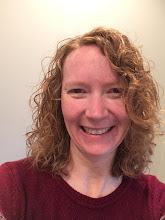So I'm sitting here listening to the drip, drip, drip of melting snow falling from my roof. Constant, steady, but ever so small. And as I need a topic to write about this week in my blog, I begin to think...
Writing can be like that drip, drip, drip. The most obvious comparison would be that our writing inspiration comes drip by drip. But for me right now, I like to think of it a little bit more as my writing process. In all honesty, I'm not working on my novel right now because I just don't have the time. My "writing" is taken up by my homework for my classes. I anticipate, however, that my situation will change when the semester is over in a couple of months.
In the meantime, I try to think about my novel and "plan" out my revisions in my mind. Drip. I learn about the things that (don't) work from the novels I have to read for class. Drip. And I work on my writing skills through the research and papers I write for classes. Drip.
So, just like a rain barrel fills with water one drip at a time, a finished piece of writing develops one drip at a time, which can happen even when you aren't physically working on it.
Writing can be like that drip, drip, drip. The most obvious comparison would be that our writing inspiration comes drip by drip. But for me right now, I like to think of it a little bit more as my writing process. In all honesty, I'm not working on my novel right now because I just don't have the time. My "writing" is taken up by my homework for my classes. I anticipate, however, that my situation will change when the semester is over in a couple of months.
In the meantime, I try to think about my novel and "plan" out my revisions in my mind. Drip. I learn about the things that (don't) work from the novels I have to read for class. Drip. And I work on my writing skills through the research and papers I write for classes. Drip.
So, just like a rain barrel fills with water one drip at a time, a finished piece of writing develops one drip at a time, which can happen even when you aren't physically working on it.

Comments
Post a Comment